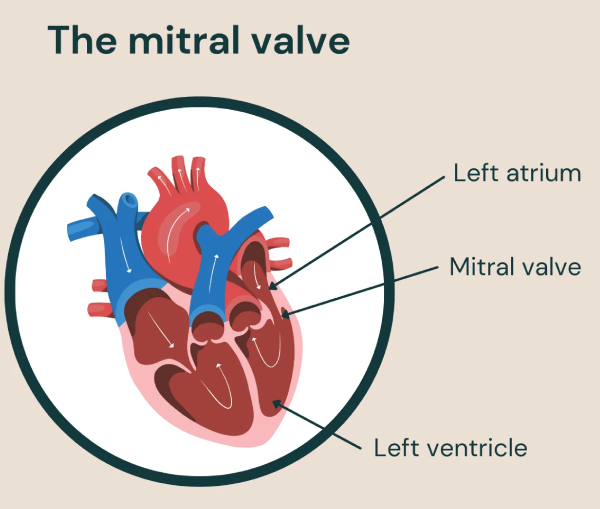Mitral Valve Prolapse Treatment in Hyderabad
Mitral valve prolapse is a type of heart valve disease that affects the valve between the left heart chambers. The flaps (leaflets) of the mitral valve are floppy. They bulge backward (prolapse) like a parachute into the heart's left upper chamber as the heart squeezes (contracts).
Mitral (MY-trul) valve prolapse sometimes causes blood to leak backward across the valve, a condition called mitral valve regurgitation. The mitral valve separates the two chambers (atrium and ventricle) of the left side of the heart. In mitral valve prolapse, the leaflets of the mitral valve bulge (prolapse) into the left atrium like a parachute during the heart's contraction. Sometimes mitral valve prolapse causes blood to leak back into the atrium from the ventricle, which is called mitral valve regurgitation.
Usually, mitral valve prolapse isn't life-threatening and doesn't require treatment or lifestyle changes. But some people may need medications or surgery, especially if the prolapse causes severe regurgitation.
Mitral valve prolapse symptoms can vary widely from one person to another. Many people with mitral valve prolapse don't have noticeable symptoms. Other people may have mild symptoms that develop gradually.

Mitral valve prolapse (MVP) is a common type of heart valve disease that affects the valve between the two left chambers of the heart—the left atrium and the left ventricle. In this condition, the flaps (leaflets) of the mitral valve are abnormally floppy and bulge backward (prolapse) into the left atrium during the heart's contraction, much like a parachute.
While this may sound alarming, many people with MVP experience no symptoms and live normal lives without any complications.
However, in some cases, mitral valve prolapse can lead to mitral valve regurgitation, a condition where blood leaks backward into the atrium due to the improper closure of the valve.
Over time, significant regurgitation can put strain on the heart, leading to symptoms such as palpitations, fatigue, shortness of breath, dizziness, or chest discomfort. For individuals experiencing these issues, medical intervention becomes essential.
When treatment is necessary, it may involve lifestyle adjustments, medications to manage symptoms or prevent complications, and in more advanced cases, surgical repair or replacement of the mitral valve.
For those in need of expert care, Mitral Valve Prolapse Treatment in Hyderabad is available at Rhythm Heart Clinic, a renowned center for advanced cardiac care. The clinic provides accurate diagnosis, regular monitoring, and personalized treatment plans designed to match the severity of the condition. Whether it's conservative management or minimally invasive valve repair, patients receive comprehensive support from experienced cardiologists and cardiac surgeons.
Rhythm Heart Clinic is also a trusted destination for Mitral Valve Prolapse Treatment in Hyderabad thanks to its commitment to using the latest medical technologies and patient-centered care. With timely intervention and expert guidance, individuals with mitral valve prolapse can enjoy improved heart function and quality of life.
Why it’s done?
Signs and symptoms of mitral valve prolapse are due to the amount of blood leaking backward through the valve. Symptoms of mitral valve prolapse may include:
- A racing or irregular heartbeat (arrhythmia)
- Dizziness or lightheadedness
- Difficulty breathing or shortness of breath, especially during exercise or when lying flat.
- Ebstein anomaly
- Ehlers-Danlos syndrome
- Muscular dystrophy
If you have symptoms of mitral valve prolapse, make an appointment with your health care provider. Many other conditions can cause similar symptoms.
Explore More : Peripartum Cardiomyopathy Treatment in Hyderabad
